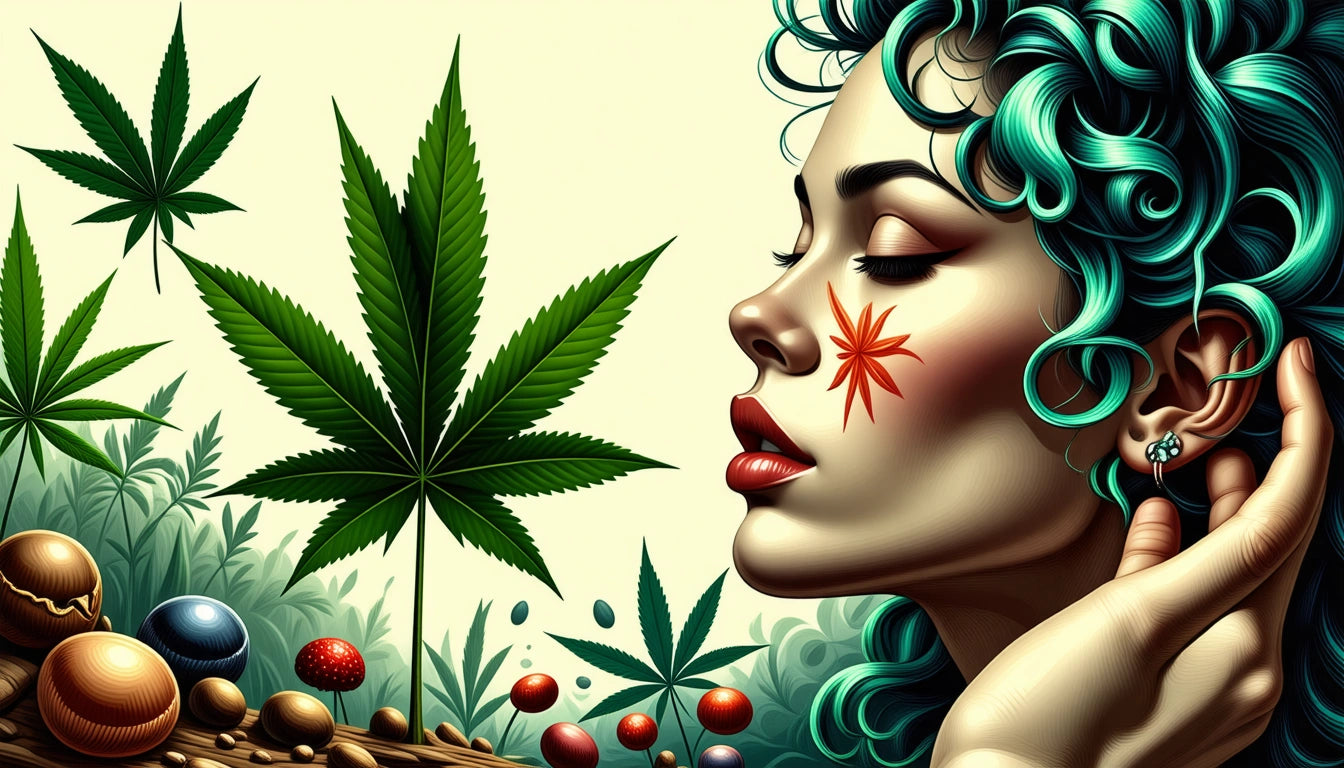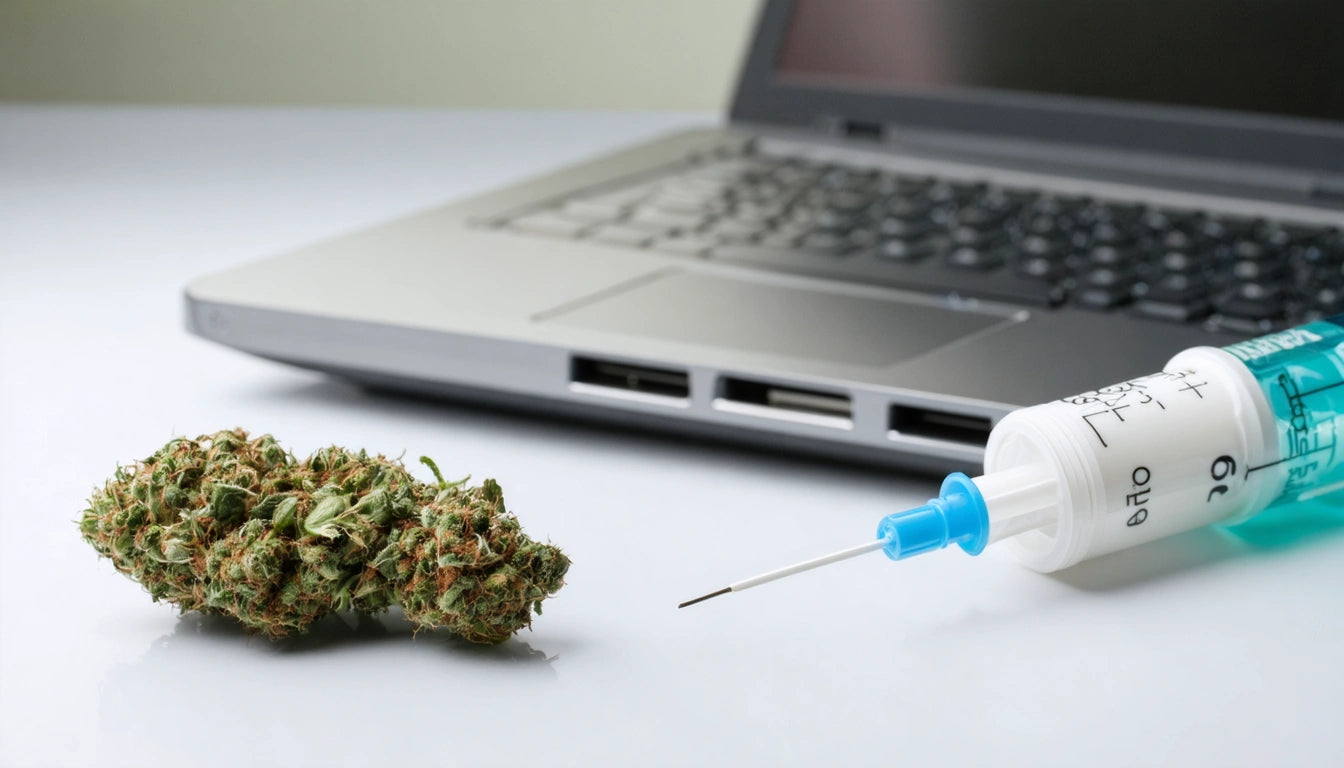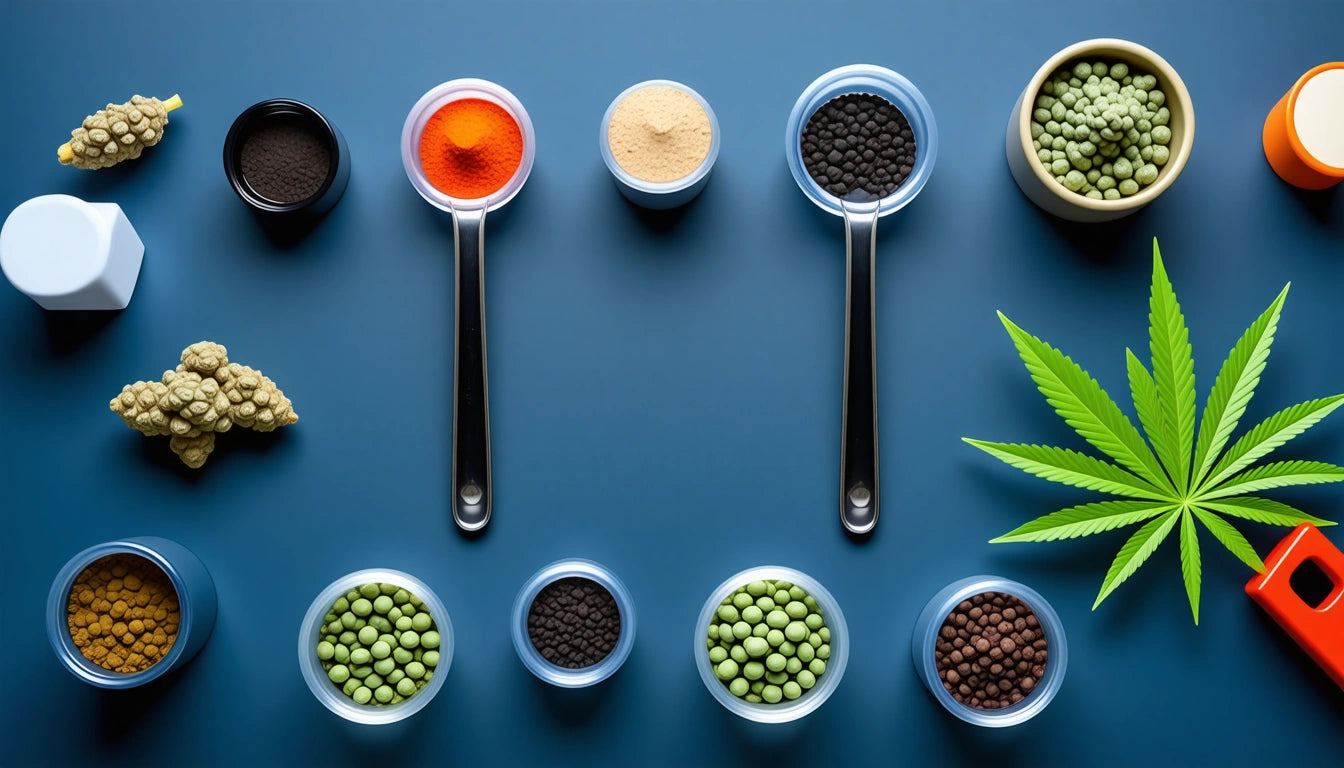Can Cannabis and Its Derivatives Cause Hallucinations?
Cannabis use has become increasingly common as legalization spreads across regions, but questions about its psychological effects remain prevalent. One common concern is whether cannabis or its derivatives can cause hallucinations. This article examines the relationship between cannabis products and hallucinatory experiences, separating scientific facts from misconceptions.
Understanding Cannabis Compounds and Their Effects
Cannabis contains over 100 cannabinoids, with THC (tetrahydrocannabinol) and CBD (cannabidiol) being the most well-known. THC is primarily responsible for the psychoactive effects associated with cannabis use, while CBD is non-intoxicating and often used for potential therapeutic benefits.
According to research on marijuana's effects, THC interacts with the endocannabinoid system in the brain, particularly binding to CB1 receptors. This interaction can alter sensory perception, mood, and cognition, but these effects differ significantly from true hallucinations.
How THC Alters Perception: Hallucinations vs. Normal Effects
The question "can weed make you hallucinate" requires clarification about what constitutes a hallucination. True hallucinations involve perceiving something that isn't present in reality, such as seeing, hearing, or feeling things that others cannot detect.
Common THC Effects vs. Hallucinations
- Enhanced sensory perception (brighter colors, heightened sounds)
- Time distortion (feeling like time is moving slower)
- Altered thought patterns
- Increased pattern recognition
These effects, while perceptual alterations, are not typically classified as hallucinations. True hallucinations from cannabis alone are rare and generally only occur with extremely high doses or in individuals with pre-existing risk factors.
Can CBD Oil Make You Hallucinate?
CBD oil and other CBD products are non-intoxicating and do not produce the psychoactive effects associated with THC. Research consistently shows that CBD does not cause hallucinations. In fact, some studies suggest CBD may have antipsychotic properties that could potentially counteract certain THC-induced psychological effects.
When purchasing CBD products, ensuring accurate dosing is important. Using precise measurement tools for cannabis products can help maintain consistent dosing and reduce the risk of unexpected effects.
Edibles and Altered Perception: Why They Feel Different
The question "do edibles make you hallucinate" arises because edible cannabis products often produce more intense and longer-lasting effects than inhaled cannabis. This difference occurs because when THC is metabolized through the digestive system, it converts to 11-hydroxy-THC, which crosses the blood-brain barrier more efficiently.
While edibles can cause stronger perceptual changes and occasionally disorienting experiences at high doses, these effects still differ from clinical hallucinations. However, the intensity of edible experiences means users should be particularly cautious with dosing.
Factors Influencing Cannabis Experiences
Several factors influence whether someone might experience unusual perceptual effects when using cannabis:
Individual Factors
- Personal sensitivity to THC
- Previous cannabis experience
- Existing mental health conditions
- Genetics affecting cannabinoid metabolism
Product Factors
- THC concentration
- Consumption method (smoking, vaping, edibles)
- Presence of other cannabinoids and terpenes
As this resource on cannabis components explains, the entourage effect from various cannabis compounds can significantly influence the overall experience.
Reducing the Risk of Negative Cannabis Experiences
For those concerned about whether pot can make you hallucinate or cause other unwanted effects, several strategies can help minimize risks:
- Start with low doses and gradually increase if needed
- Choose products with known cannabinoid content
- Be mindful of set and setting (mindset and environment)
- Avoid mixing cannabis with other substances, particularly alcohol or psychedelics
- Consider the CBD:THC ratio, as CBD may moderate some of THC's effects
Understanding how cannabis affects mood and perception can help users make informed decisions about consumption.
While cannabis can certainly alter perception and cognition, characterizing these effects as hallucinations is generally inaccurate. Most cannabis experiences involve enhancement or distortion of existing sensory input rather than the creation of entirely new perceptual experiences disconnected from reality.
For those using cannabis medicinally or recreationally, understanding the distinction between normal cannabis effects and true hallucinations can help reduce anxiety and promote safer consumption practices.











Leave a comment
All comments are moderated before being published.
This site is protected by hCaptcha and the hCaptcha Privacy Policy and Terms of Service apply.